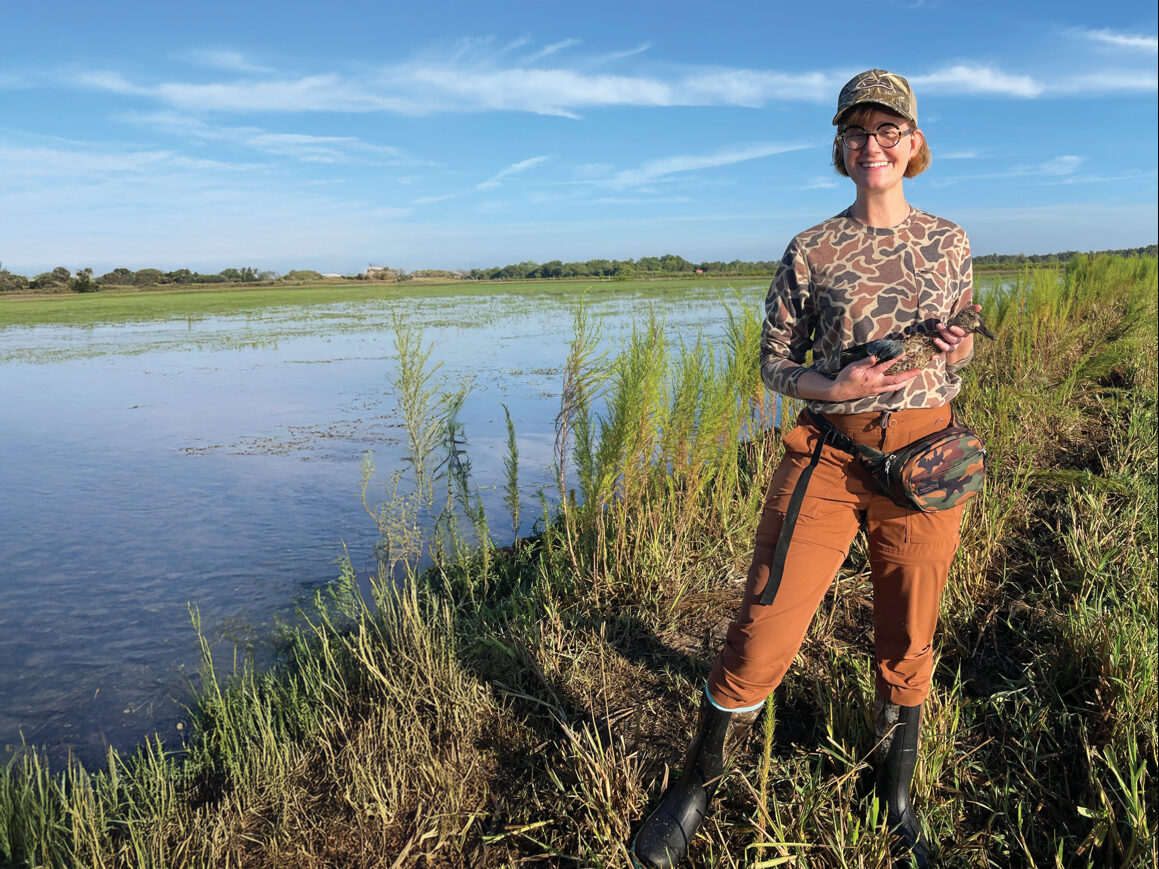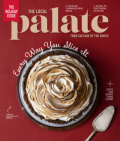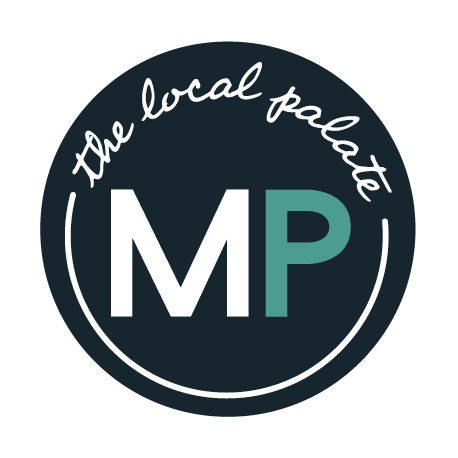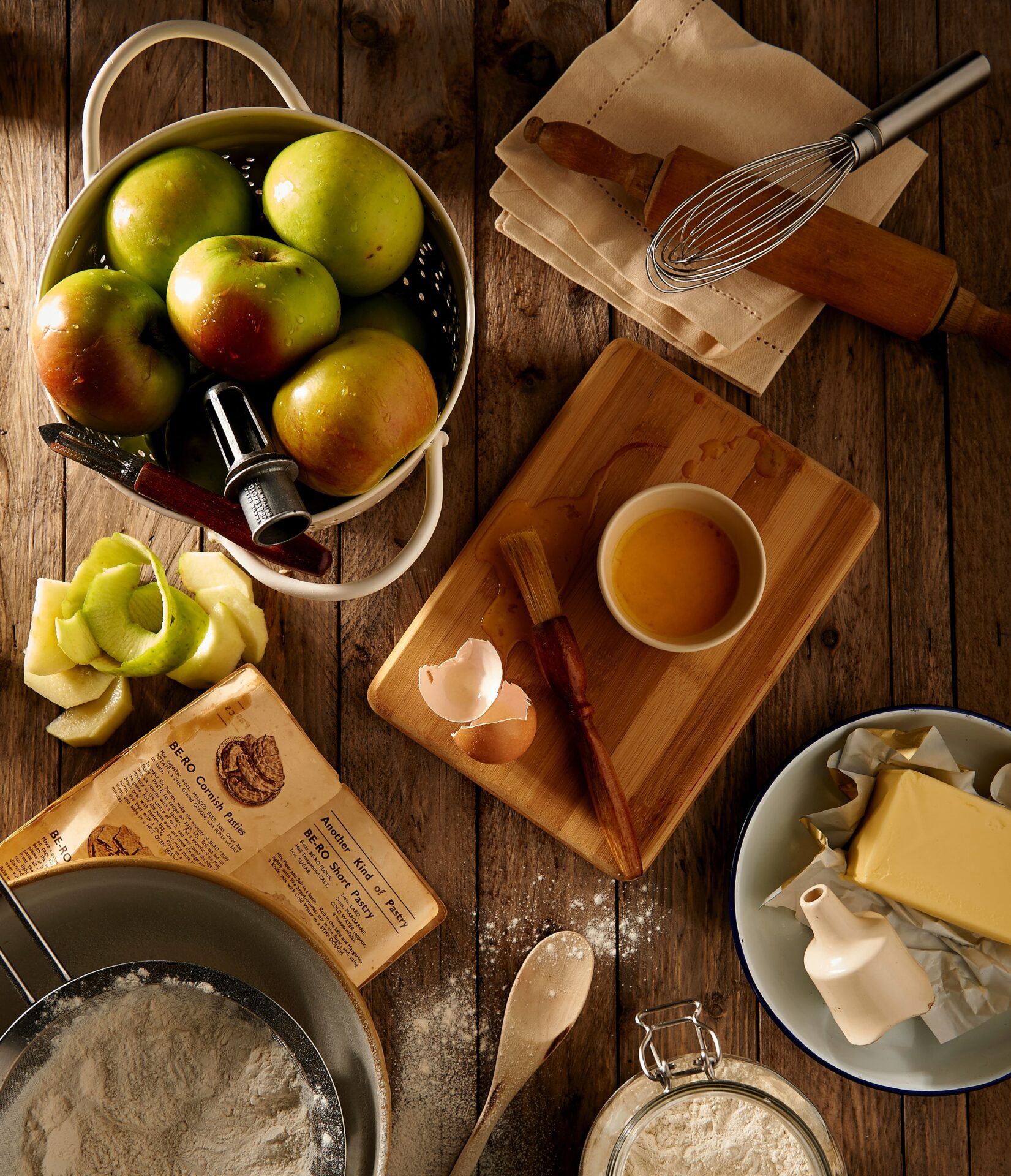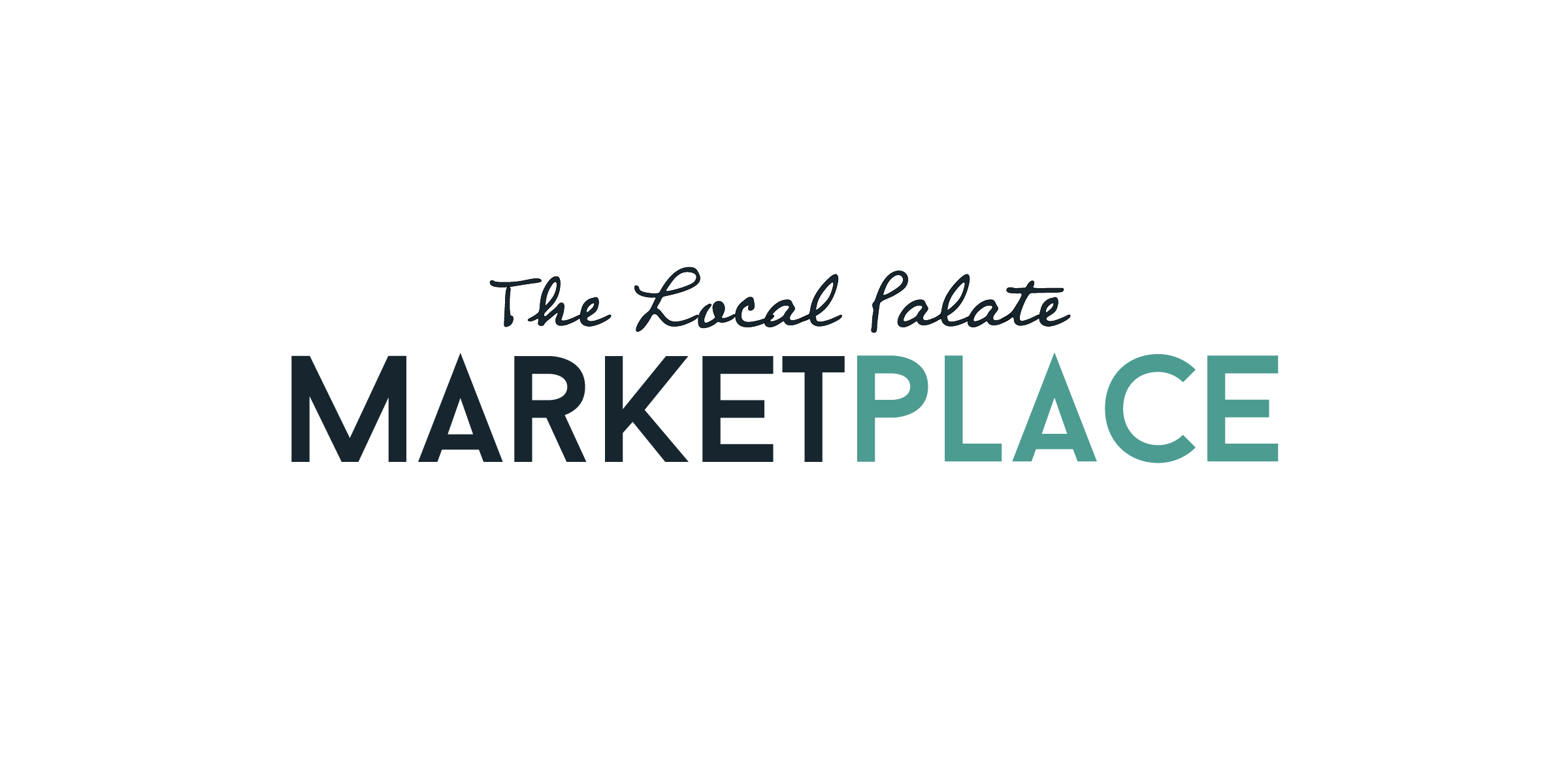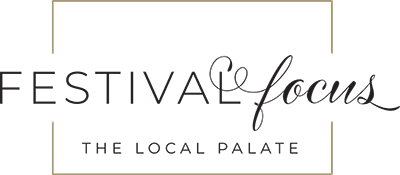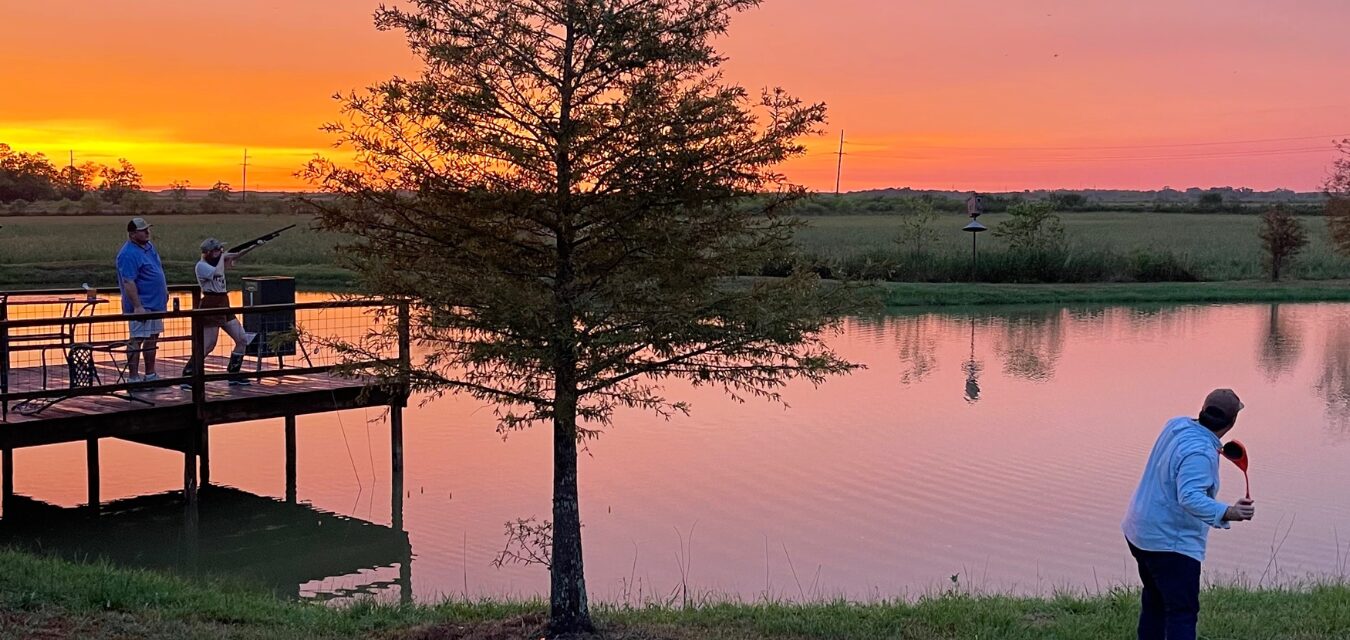A novice hunter spends the opening weekend of teal season on the Cajun prairie at Duck Camp.
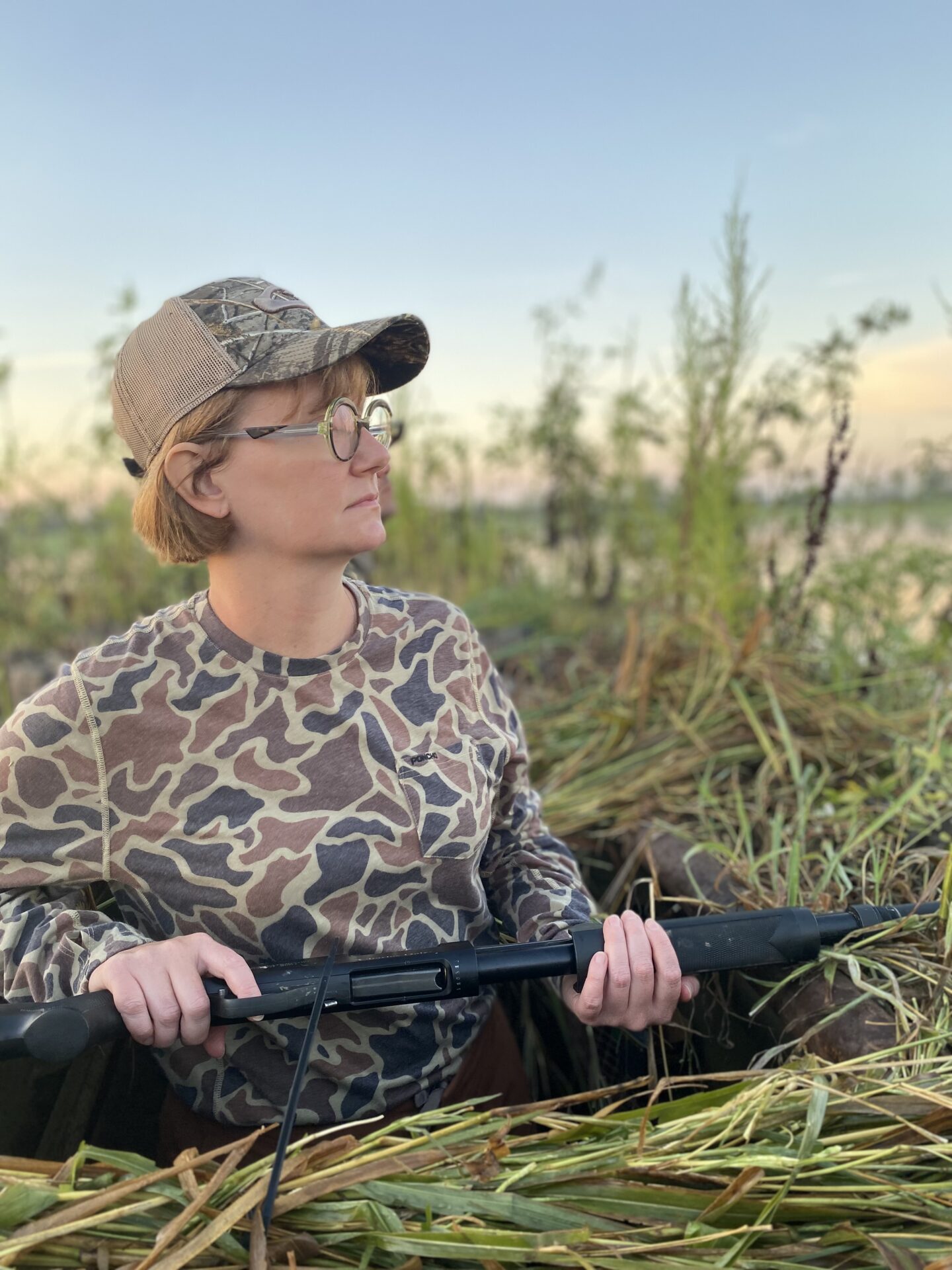
My alarm sounded at 4:30 a.m. I brushed my teeth, tucked my hair beneath a camo hat, and pulled borrowed neoprene boots over quick-dry pants. At the edge of a rice field, I piled with a group of hunters into a souped-up, air-conditioned side-by-side, its headlights choked with a cloud of bugs. We rode along dikes to our blind, a metal trough sunk into the earth that was shielded with marsh grass. At 6:25 a.m., a half hour before sunrise, I heard the first pop-pop-pop of shotguns.
This was my introduction to duck camp, where I was spending opening weekend of teal season in Gueydan, Louisiana, aka Duck Capital of America.
Each year, 18 duck species stop over in Louisiana wetlands as they fly from breeding grounds in the north to their winter habitats. In September, blue-winged teals are the first to arrive en route to Mexico and Central America. In recent years, more than 80,000 registered hunters—following a storied, gun-toting Acadian tradition—eagerly await the birds in their blinds. In between hunts, they gather at duck camp.
Despite my Manhattan address and zero qualifications, Drake Leonards had roped me into this weekend of duck hunting. Leonards runs the Cajun-Creole restaurant Eunice in Houston, named for his southern Louisiana hometown, and at camp, I would be joining men with whom he had grown up hunting, fishing, and generally stirring up trouble. The day before my early wake-up call, we’d driven from Houston to Gueydan in his Ford 150, and over Bluetooth, we learned that our companions had bagged the day’s teal limit by 8:30 a.m. In their voices, in an instant, I recognized my dad talking on the phone with his fraternity brother, Pete, and my uncles regaling us with the misadventures of their annual pheasant hunt. I’d been mostly excluded from those outdoor pursuits, but here I was driving toward an envy-inducing hunt. After a night at duck camp, I’d have my own stories to tell.
I used that eastward I-10 drive to ease into the Cajun prairie—rice country. We pulled over at In-Law’s Cajun for cracklins, fried ribs, golden boudin balls, and smoked boudin links that I squeezed from their casing into my mouth like a cheap summer popsicle. I sucked down a piña colada roadie from the drive-thru Daiquiri Shack in Eunice; at the one-room Mowata Store, we picked up ponce, or pig stomach stuffed with sausage and rice.
Finally in Gueydan, we stopped at G&H Outdoor Store, purveyor of farm and garden supplies, alligator and crawfish feed, apparel, guns, and ammunition. I registered for a waterfowl hunting license and bought a Drake brand camo cap. I eavesdropped on shoppers as they swapped stories from their morning shoot. What I imagined to be a sleepy country store for much of the year crackled with energy and anticipation. The ducks and hunters all traveled to this place year after year, eager to meet in the morning in a flooded rice field.
Acadians arrived in Louisiana in the mid-18th century after the British expelled the French speakers from Nova Scotia, and as they adjusted to life in humid, isolated southern Louisiana, a distinct Cajun culture emerged from the swamp’s wild riches. For generations, duck hunting meant self-sufficiency, mouths fed. Now, it’s Leonards’ out of office, a flip switched from Houston business owner to native son—a bit more laissez les bon temps rouler than survival. But the tradition is no less potent. Cajun culture endures when hunters leave home and gather with friends at duck camp, ostensibly for the purposes of securing dinner.

“Fall in the South, for me, is marked by the first football game, opening weekend of teal season, and the first gumbo of the year,” Leonards later told me.
By the time we arrived at camp in the late afternoon, 15 or so birds were already simmering in brown gravy in an aluminum roaster on the stovetop. The blue-winged ducks had flown over the flooded fields of Vermilion Parish earlier that morning as the sky turned from star-flecked black to pink to cornflower blue.
Our camp belonged to Michael Guillory, an oil and gas man and longtime friend of Leonards from Eunice. To a double-wide trailer, Guillory had annexed a metal building with a kitchen and entertainment room. A covered carport sheltered labrador retrievers in their kennels. Twelve ducks, as if in flight, hung near a bar stocked with Tito’s and Crown Royal. I chose a bottom bunk set with a polyester navy coverlet and learned that I would be sharing a bathroom with seven guys. Among them: the Frugé boys, David and Michael; Chad Brisco and his son Weston; and Leonards and his chef de cuisine, Scott Phillips.
Before sunset and whiskey, and to size up this interloper in her factory-fresh camo, the crew took me to a pond out back for a gun safety lesson and target practice. Each gave me good advice that nevertheless failed to yield a clean shot. Shoot in front of the target or just below. Aim straight at it. Imagine a duck and set your sights on the neck, the top of the back, the beak. Bailey, a young and wiry yellow lab, dived into the water to retrieve my unbroken clays.
“You gotta pull your own weight to be invited back to duck camp,” Leonards confided. “You gotta be a good shot. You gotta be a good cook. You gotta be a good bullshitter. If you can’t do any of those, you better clean up after everybody.”
No one would let me take out the trash, and capable cooks had already planned an hours-long feast to be paired with 10-ounce cans of Miller Light. David Frugé had plucked, stuffed, bronzed, and braised the ducks; he reserved the heart and gizzards for my plate, the tender and essential organs of a bird that had never seen the inside of a cooler. Michael Frugé brought rice grown on his farm in Eunice. We doused ourselves in mosquito repellent so we could nab Gulf oysters as Phillips took them off the grill. Leonards tinkered with maque choux, ponce in gravy, and that first pot of teal gumbo.
Turns out, I’d have to bullshit for my keep. So I poured myself an old fashioned and shamed a fruity vodka concoction one of the hunters mixed without irony. After dropping a few well-timed f-bombs and some gentle ribbing about the dominance of the Georgia Bulldogs over the LSU Tigers, I was welcomed—for a night, at least—into the circle of storytelling. Fights in pool halls, fights in parking lots, Guillory’s doomed love life, college drinking exploits, best-loved dogs, daughters’ accomplishments.
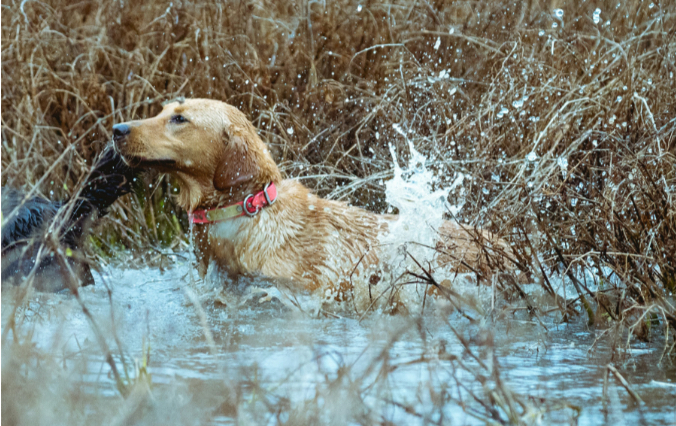
Men from other camps dropped in and made plates. You could tell the local boys by their cane syrup cadence, the way “egret” rolled off the tongue. As the night went on, Leonards warned, accents would grow twangier. It would all get a little fuzzier. New tales would be born. After one truckful of men left camp, they ran over a 10-foot alligator, which did not prevent the lizard from charging them as they filmed it with an iPhone.
At the time, I did not fully realize the living, breathing portal to history and culture I had entered. There are duck camps that cater to wealthy, out-of-state hunters; hunting clubs with official memberships and bylaws; family camps; duck camps so deep in the swamp that they can only be accessed by boat; shacks in the woods without indoor plumbing. Regardless of their creature comforts, many camps share structural characteristics—bunk beds, card tables forbourré, gun storage, cleaning stations, dog kennels, and satellite TV for LSU games—according to Maria Rachal, a historian and daughter of Cajun country, who wrote her master’s thesis on duck camp. The rhythm of the camps, too, is remarkably similar. “A lot of it is inherent and practiced ritual that people don’t even recognize,” says Rachal.
That night, along with countless other hunters scattered across the backwoods of southern Louisiana, I fell into my bunk bed after eating an elaborate meal and shit-talking into the wee hours.
The wake-up call came while it was still dark, dogs and shooting positions assigned. Once we were out in the blind, David worked his duck call, and soon enough his squeaks and squeals summoned a swirl of fast-flying teal. The men claimed their shots. Ducks fell from the sky. Bailey bounded into the water, splashing with glee. When a naive teal swam up to a decoy, the men let me take the sitting duck, a soft-feathered beauty I’d later hold in my hands. By 8 a.m., despite the whiskey from the night before, we were just one bird short of our limit; the ducks had scattered, and a tender recoil bruise had started to form near my shoulder.
Leonards and I had to leave camp early for Breaux Bridge, where he would cook a special dinner at Maison Madeleine. On the way out of town, we stopped at a gas station for a sausage biscuit. The cashier took one look at me and asked if I was on a road trip. I told her, with deep satisfaction, “No, ma’am. I’ve been hunting teal.”
